
22 Feb, 2024
To become a multi-sectoral HUB, Thailand first needs to build its HOB
Bangkok — On 22 Feb, Prime Minister Srettha Thavisin unveiled an “IGNITE Thailand Vision” policy to make the kingdom a HUB of tourism, health & wellness, agriculture & food, aviation, logistics, future mobility, digital economy and finance. But speakers at a conference on promoting interfaith dialogue held at Bangkok’s prestigious Chulalongkorn University on Feb 17 were one step ahead. In his keynote speech, Prof. Dr. Kanok Wongtrangan, Vice Chairman of Advisory Board to the Minister of Social Development and Human Security, and a former Parliamentarian, said, “Peaceful coexistence in our society needs Harmony, Order and Balance (HOB). All religions teach these three points but we hardly practice them.”
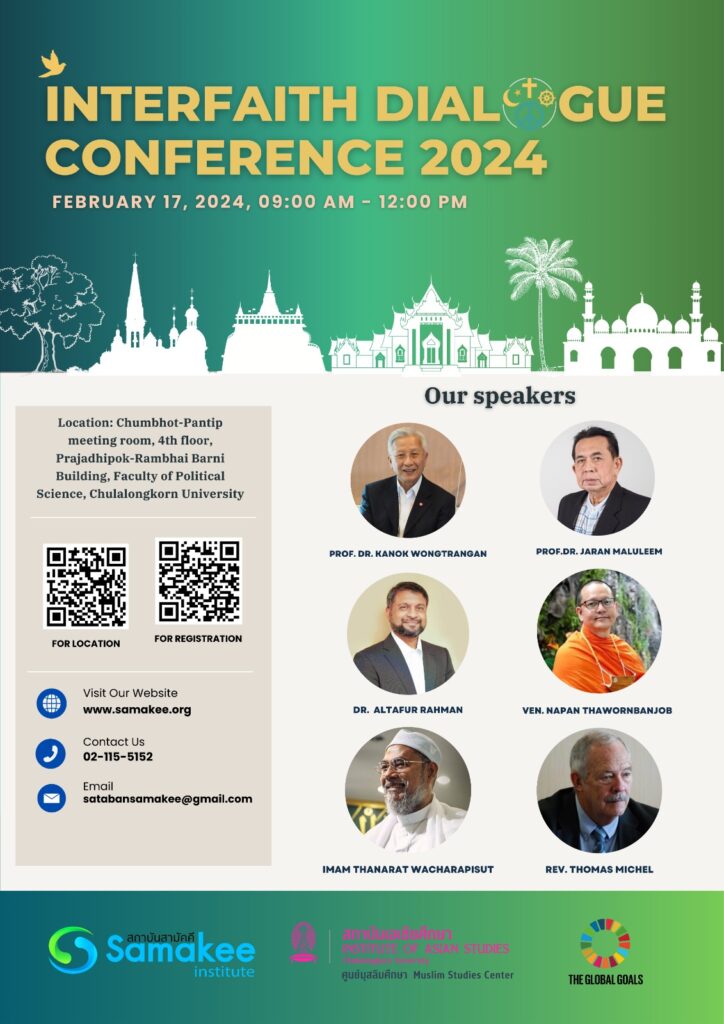
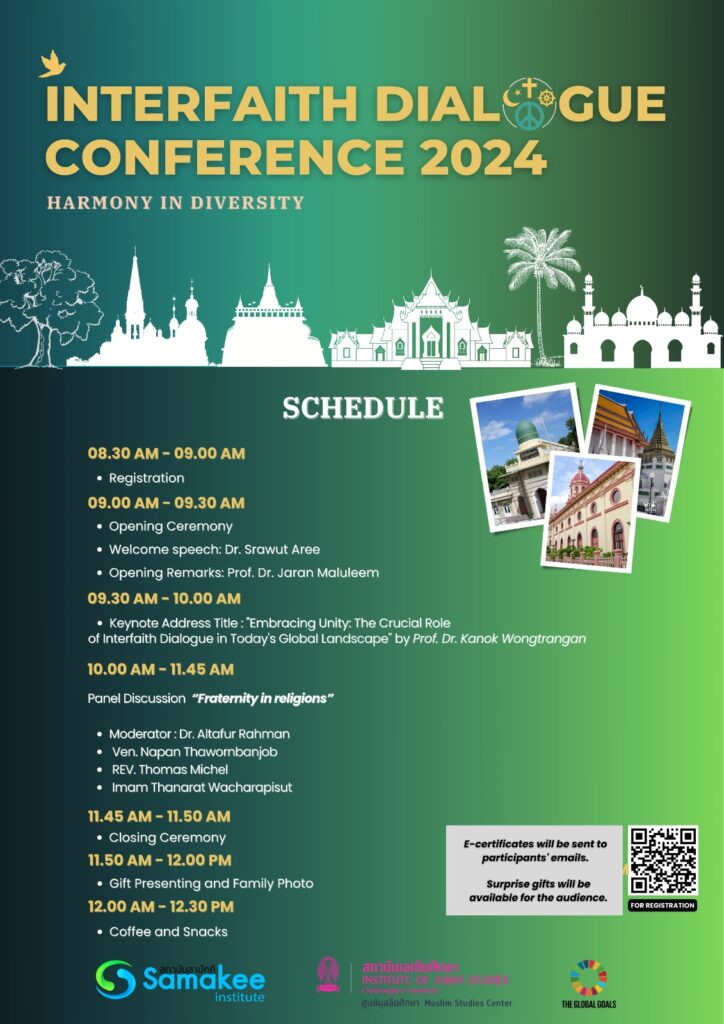
In a world ridden with geopolitical, economic, social, cultural and environmental strife, the conference explored whether religions and faiths can be a part of the solution. In a clear warning about faiths becoming a part of the problem, Prof Kanok added, “Differences of faiths lead to mistrust, misunderstanding, conflict and violence. We can observe this phenomena in contemporary global communities, including Thailand. Economic inequality and social disparity in our global and local communities leads to doubt, hatred, political conflict and confrontation. Disinformation, misinformation and personal biases, particularly political and religious biases in our social media world, manipulation and politicisation of religious beliefs have led us to undesirable actions and consequences, especially violence and destruction.”
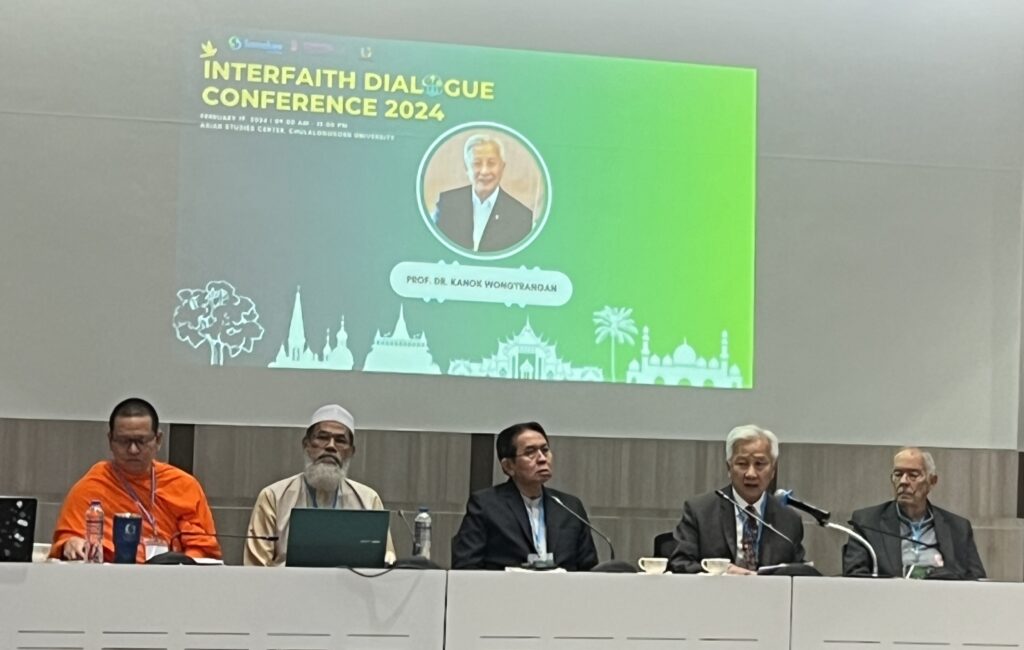
In order to become a part of the solution, Prof Kanok said, “We have to join hands to search for tools and mindsets to overcome these problems and bring back peaceful co-existence and friendly, productive cooperation and collaboration in our society.”
Organised by the Samakee Institute, (“Samakee” means Unity in Thai), the conference focussed on the role of religious leaders in creating Harmony, Order and Balance. In addition to Prof Dr Kanok, speakers included Ven. Napan Thawornbanjob, Chair, Institute of Buddhist Management for Happiness and Peace Foundation, (IBHAP Foundation), Rev. Thomas Michel, an American Jesuit Catholic professor who teaches at the Xavier Learning Community in Chiang Rai and specialises in Islamic studies, and Imam Thanarat Wacharapisut, the spiritual leader of the well-known Haroon mosque, Bangkok. Opening remarks were delivered by Dr. Srawut Aree, Director of the Muslim Studies Centre, Institute of Asian Studies, Chulalongkorn University, and Prof. Dr. Jaran Maluleem, Dean of the International Islamic College, Bangkok.
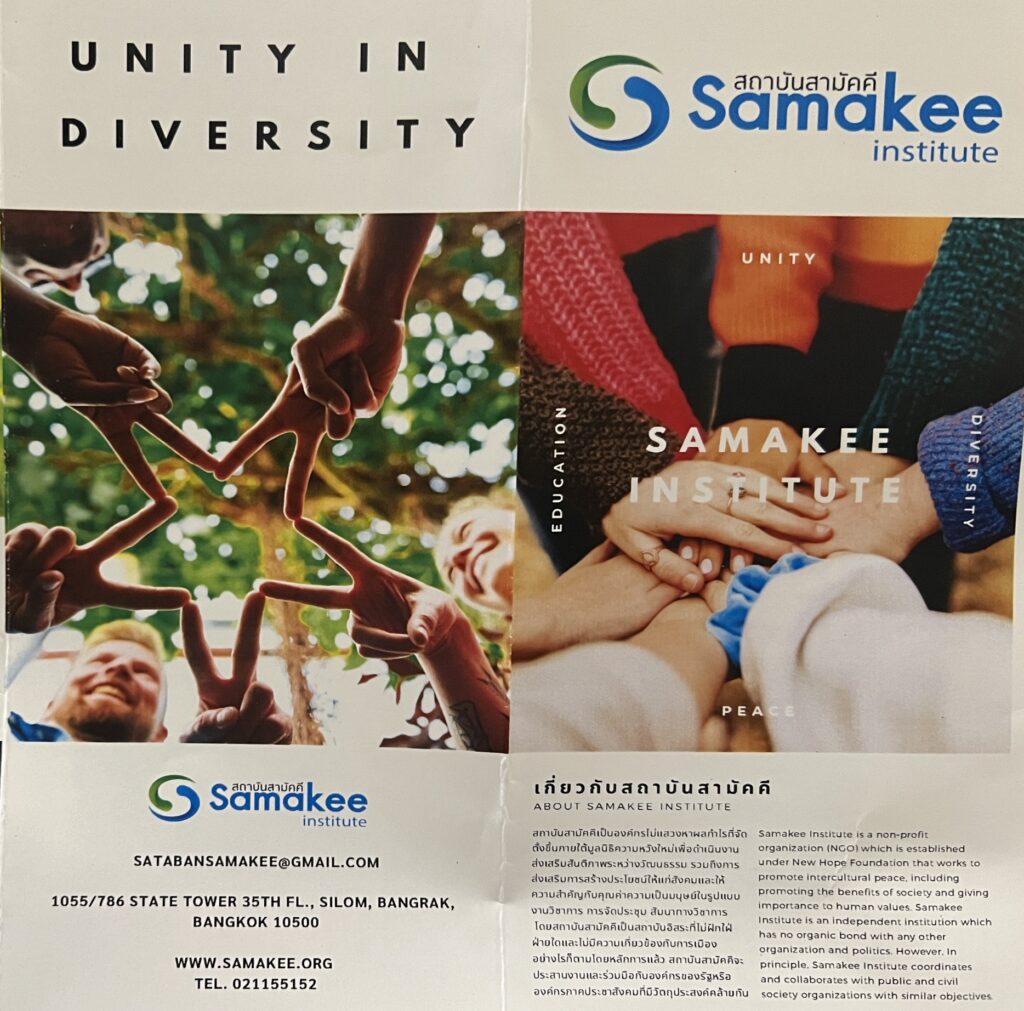
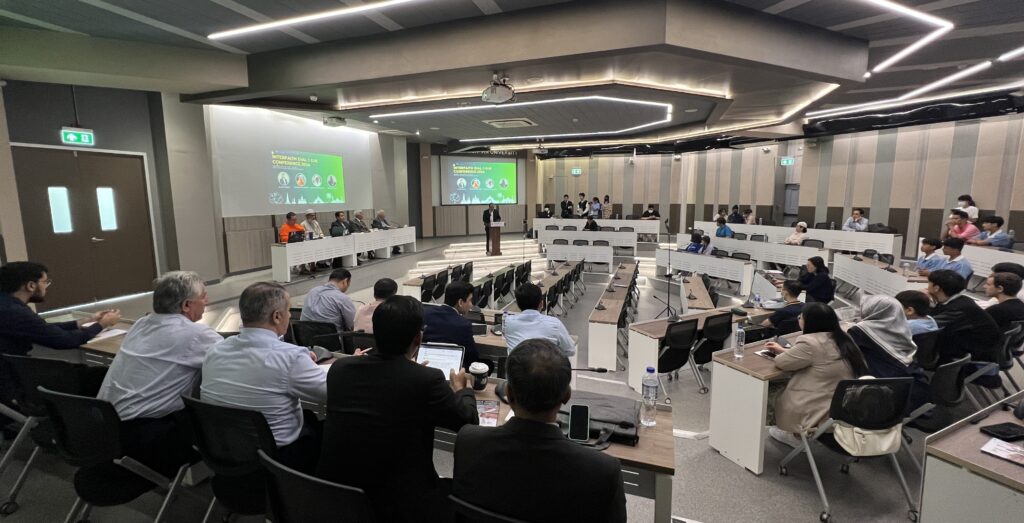
The conference flagged several ways to avert a Clash of Civilisations, a looming geopolitical threat to Thai tourism. Two other Buddhist-majority countries, Sri Lanka and Myamar, with equally rich culture and natural and tourism attractions, have been hit by ethnic, social and cultural strife. Thailand has steered clear — so far. As Travel & Tourism is now a critical contributor to national security, economic stability and socio-cultural peace, Thailand needs to strengthen its HOB status and prioritise crisis prevention over crisis management.
In his welcoming speech, Mr Pisut Namcharoenchai, President of the Samakee Institute (pictured below), said, “Inter-religious dialog is not a luxury but has become a necessity in today’s global world. The pluralities of the contemporary world will continue to exist and present a greater and greater challenge, as the world becomes a global village. Different beliefs, races, customs and traditions will continue to cohabit in this village…. The peace of this (global) village lies in respecting these differences, considering these differences to be part of our nature and in ensuring that people appreciate these differences.”
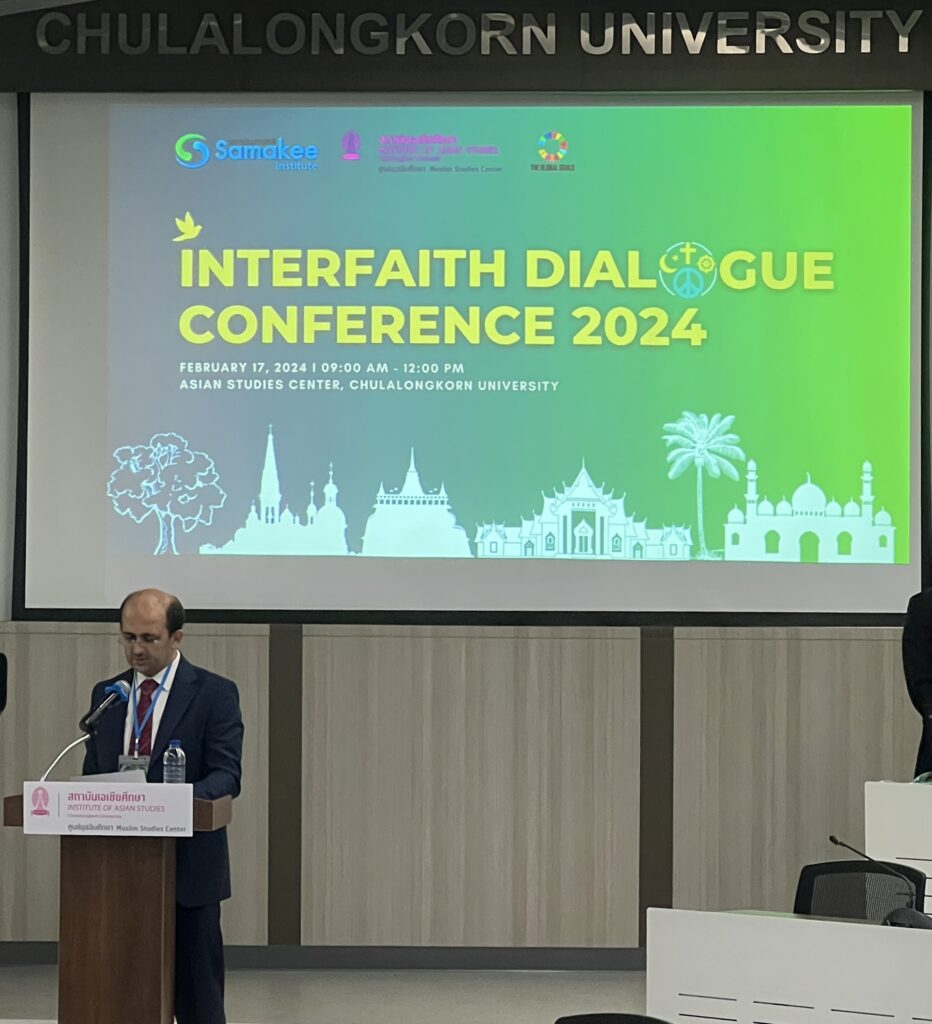
Added Dr. Srawut Aree (pictured below), “This interfaith dialogue conference, a platform where diverse voices meet to explore the common threads that weave through the notions of our beliefs. In a world often marked by differences, today we come together to celebrate the shared values that bind us as a global community. In the spirit of openness, let this conference be a HUB for building connections, fostering friendships, and breaking down barriers.”
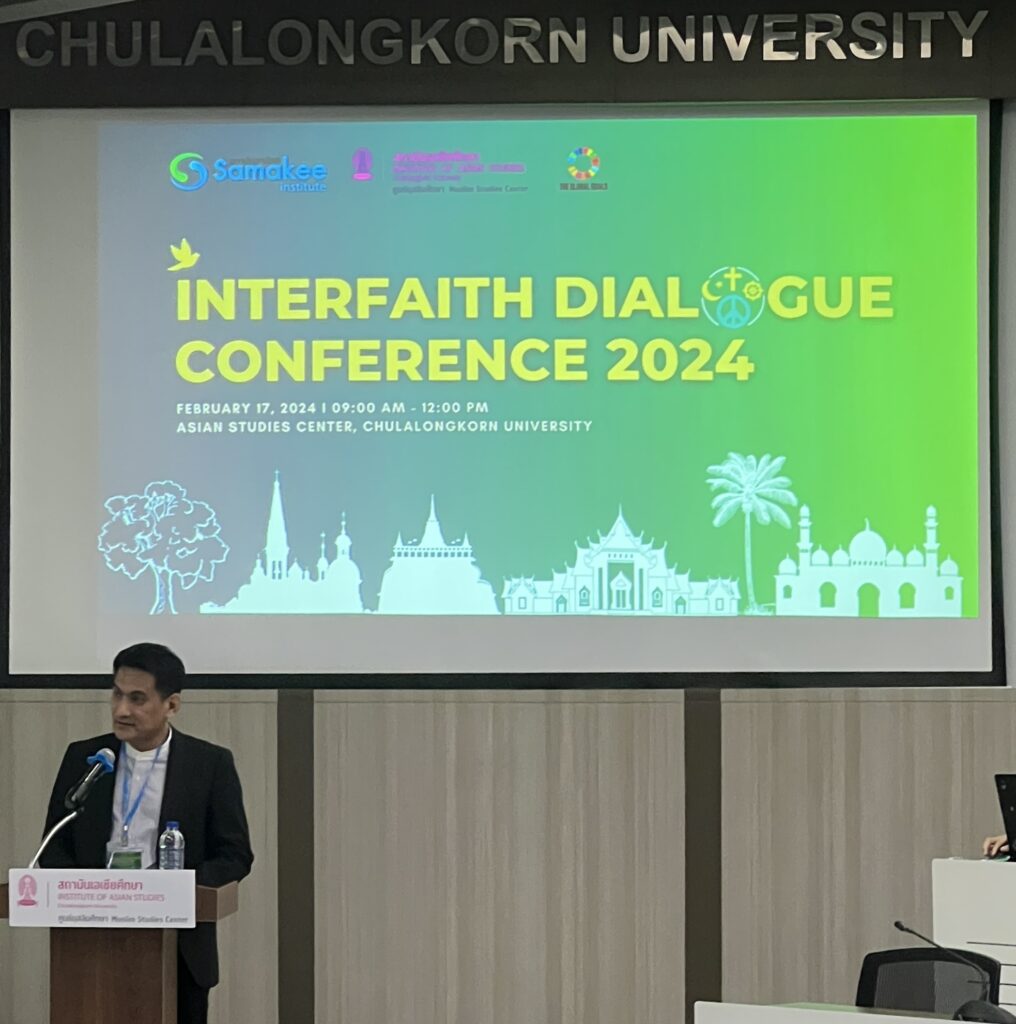
That’s exactly what transpired. Here is a checklist of proposed solutions, ready for adaption and implementation by those who believe that if there is a will, there is a way:
Keypoints by Ven. Napan Thawornbanjob
(+) Pointing to the all-male lineup on the panel, he said the first thing which can be done is to encourage more women in the decision-making process.
(+) Focus on common problems such as hunger and poverty, which are amongst the 17 UN Sustainable Development Goals, and can be a basis for common action.
(+) The five Ps of the SDGs can be expanded to include a 6th P for Phra (monk). “In Thailand, we have 300,000 Buddhist monks. I would like to see them all promoting interfaith relations.”
(+) Fraternal relations can exist even in the midst of disagreements. In Buddhism, fraternity is all about encouraging harmony and reducing harm.
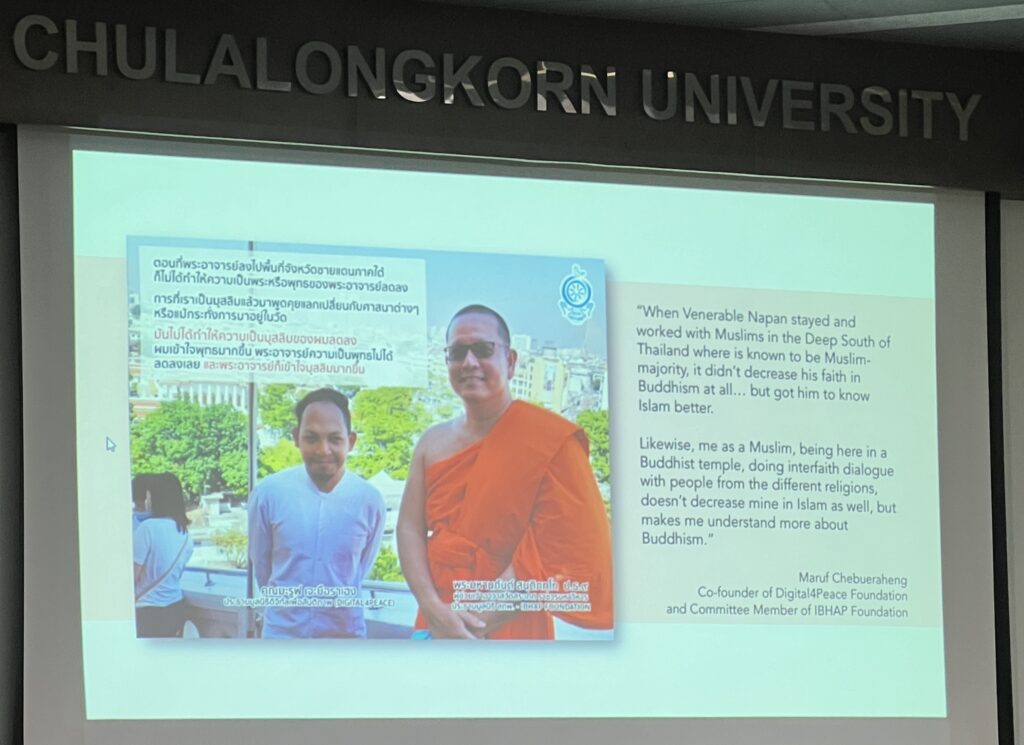
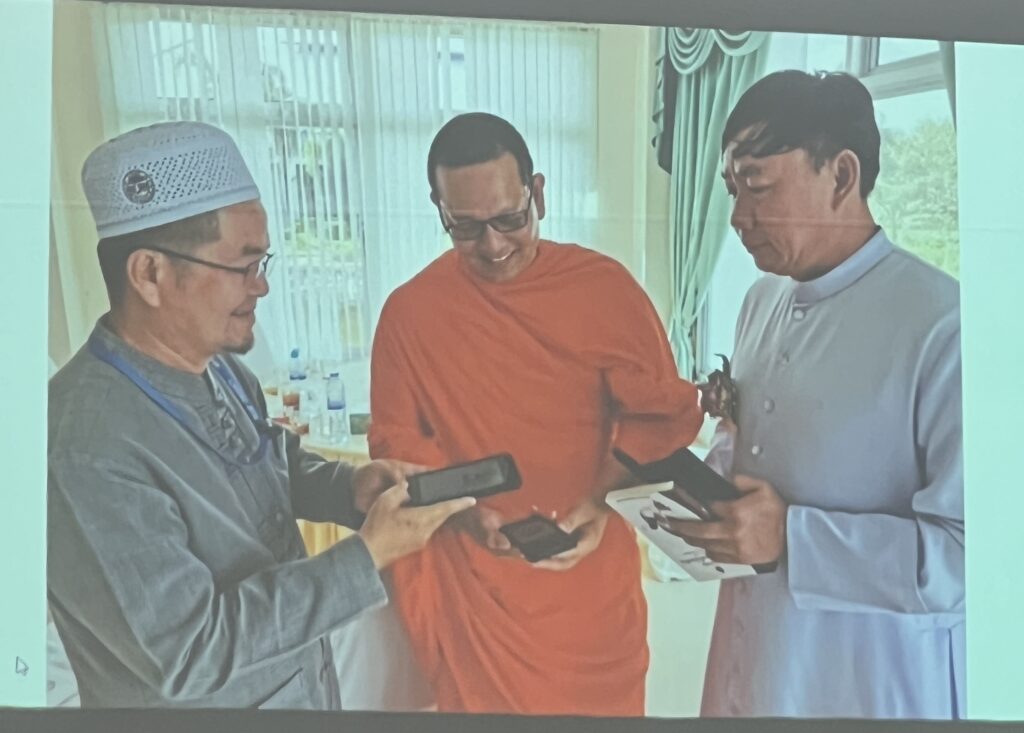
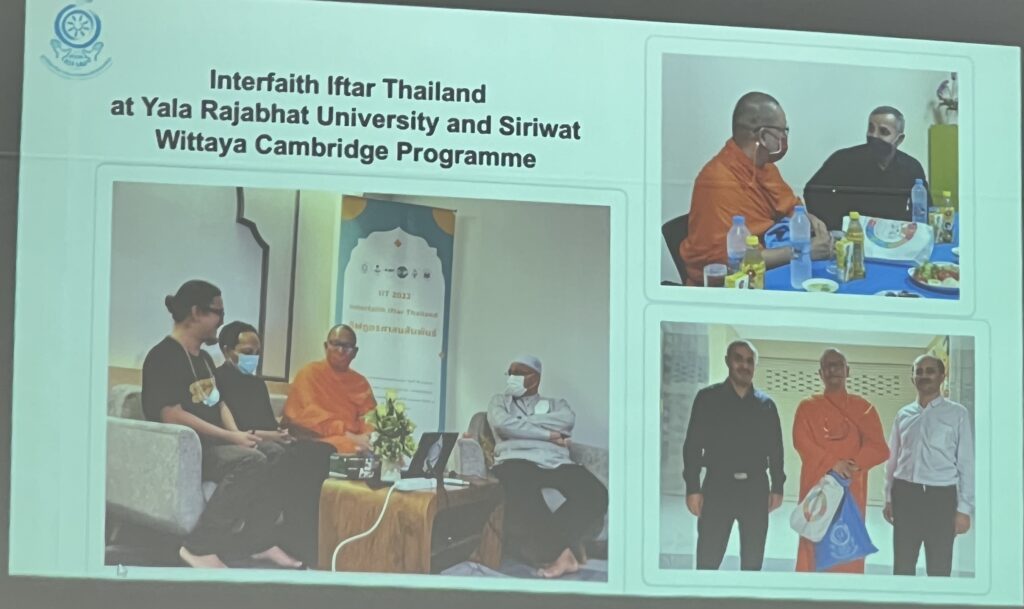
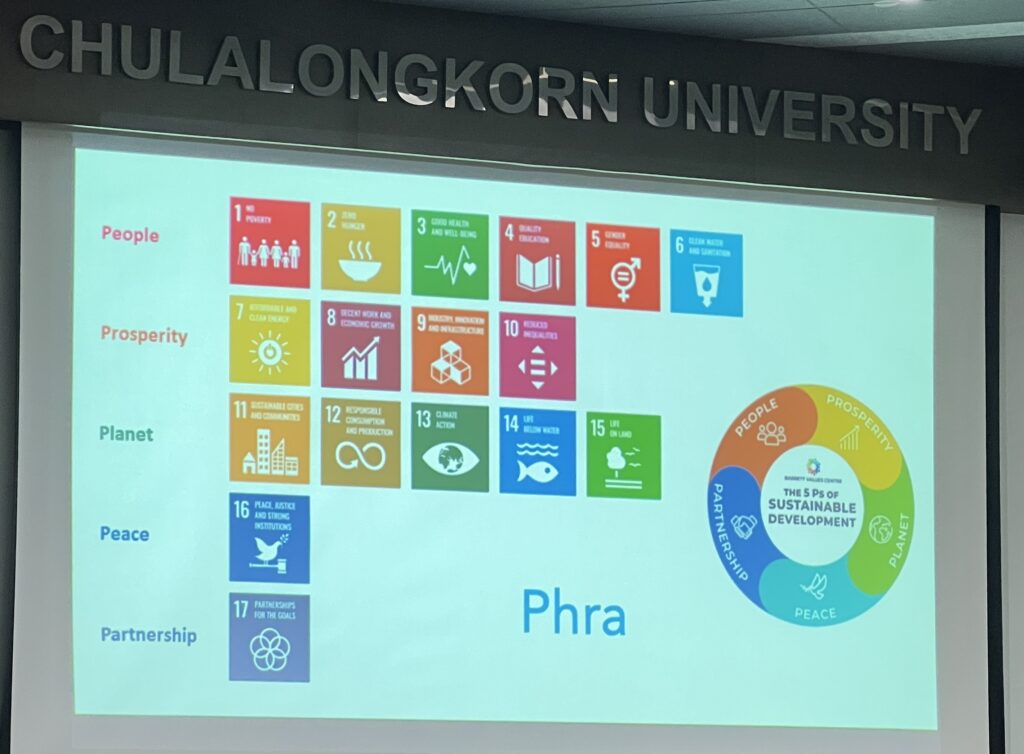
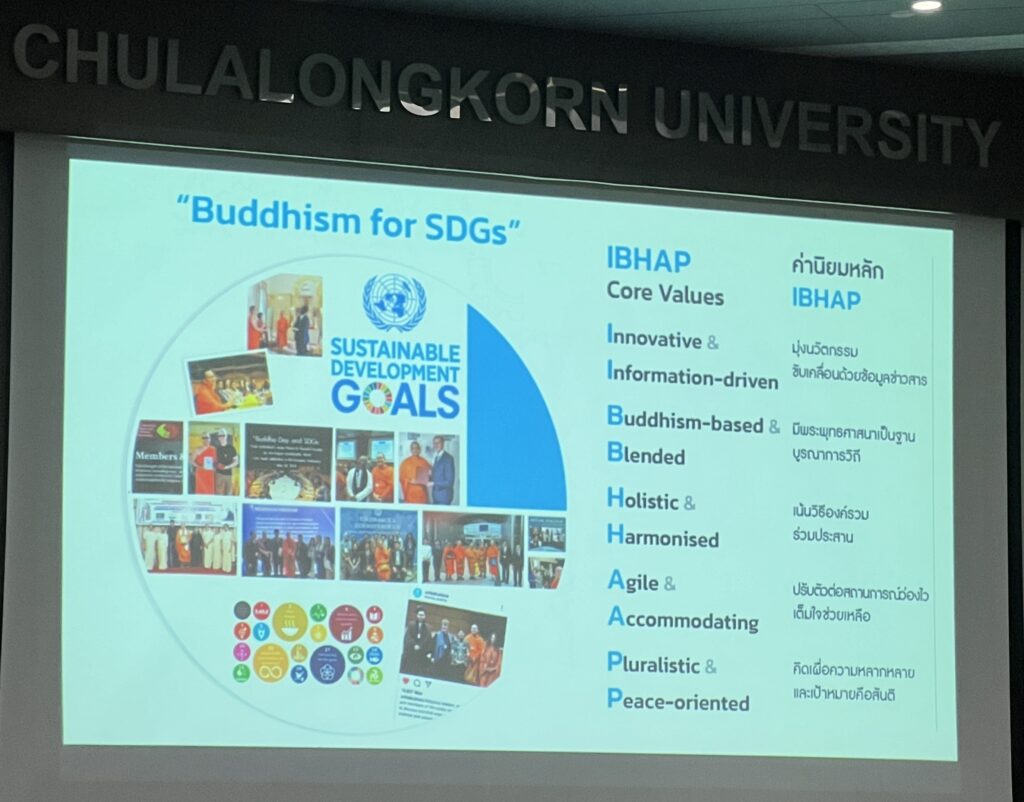
Keypoints by Islamic scholars
Prof Jaran Maluleem: Steer clear of religious absolutism. Individuals who are extremist in the righteousness of their own faiths cannot effectively contribute to constructive interfaith dialogue.
Imam Thanarat: Replace selfishness with selflessness, and look within for guidance. He narrated several stories about how promoting understanding, steering clear of violence is inclusively built into Islamic tenets.
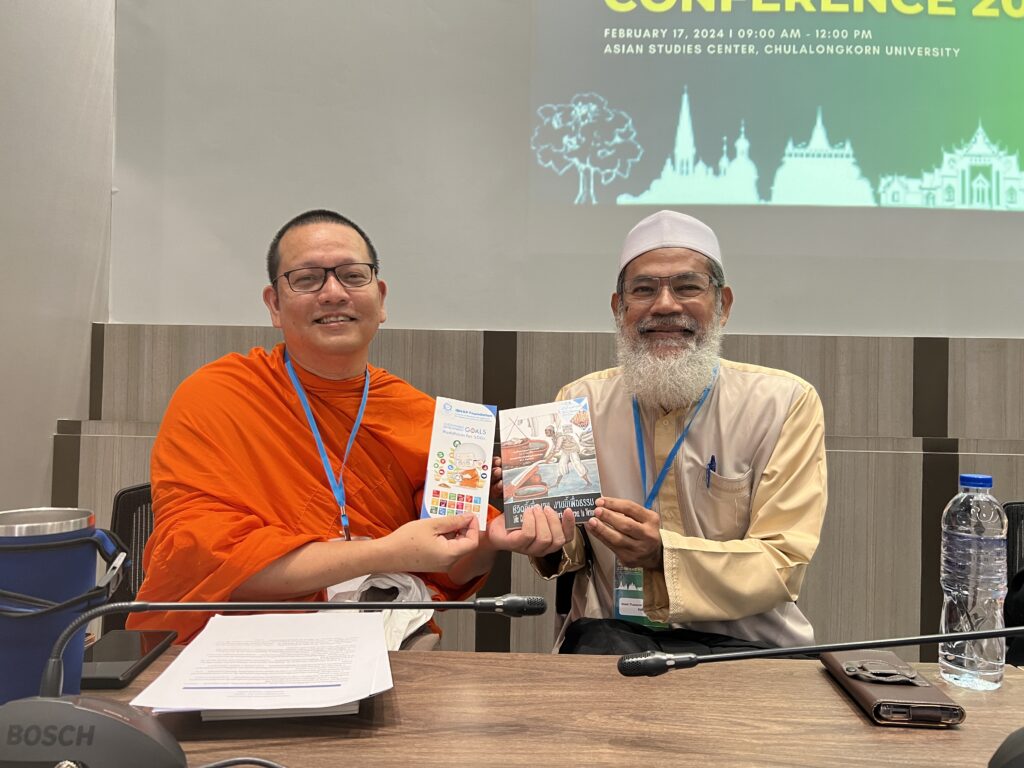
Keypoints by Rev. Thomas Michel
(+) Move away from clanish definition of brotherhood. Divisions can lead to injustice and suffering. “But we must understand that our own followers are part of the problem. We must recognise that we have often violated our own precepts.”
(+) Learn from inspiring stories in the scriptures. He narrated the story of a traveller who was attacked by thieves and his properties stolen. No-one stopped to help, not even people of his own faith. Eventually, it was a person of another faith who helped. Who was a true brother to the wounded man on the road?
(+) He expanded on the definition of universal fraternity with a personal story dating back to 1986 when he was lecturing at a university in Turkiye (formerly Turkey). Diagnosed with skin cancer, he was treated free of charge at the university hospital. “I was almost in tears,” he said. “Fraternity is something we can know only when we experience it.”
(+) Help the unfortunate, such as migrants and refugees, no matter their caste or creed. What can we do to share our goods, our comforts, our time and energy and with the less fortunate? Humans have a responsibility to alleviate the suffering of humanity no matter who they are. Helping people is not just a duty but an obligation.
Keypoints from the keynote by Prof Dr Kanok (pictured below, left)
(+) Truly embrace unity among diversity. The global landscape of diversity is wide-ranging, complex, uncertain, volatile, and subjective. It is also constantly changing, thanks to economic, social, cultural, traditions, languages, technology, as well as political interests and ideas. In order to embrace diversity, we need to transcend our perceptions and thoughts and search for principles, values, concepts, norms to connect those realities into a coherent structure.
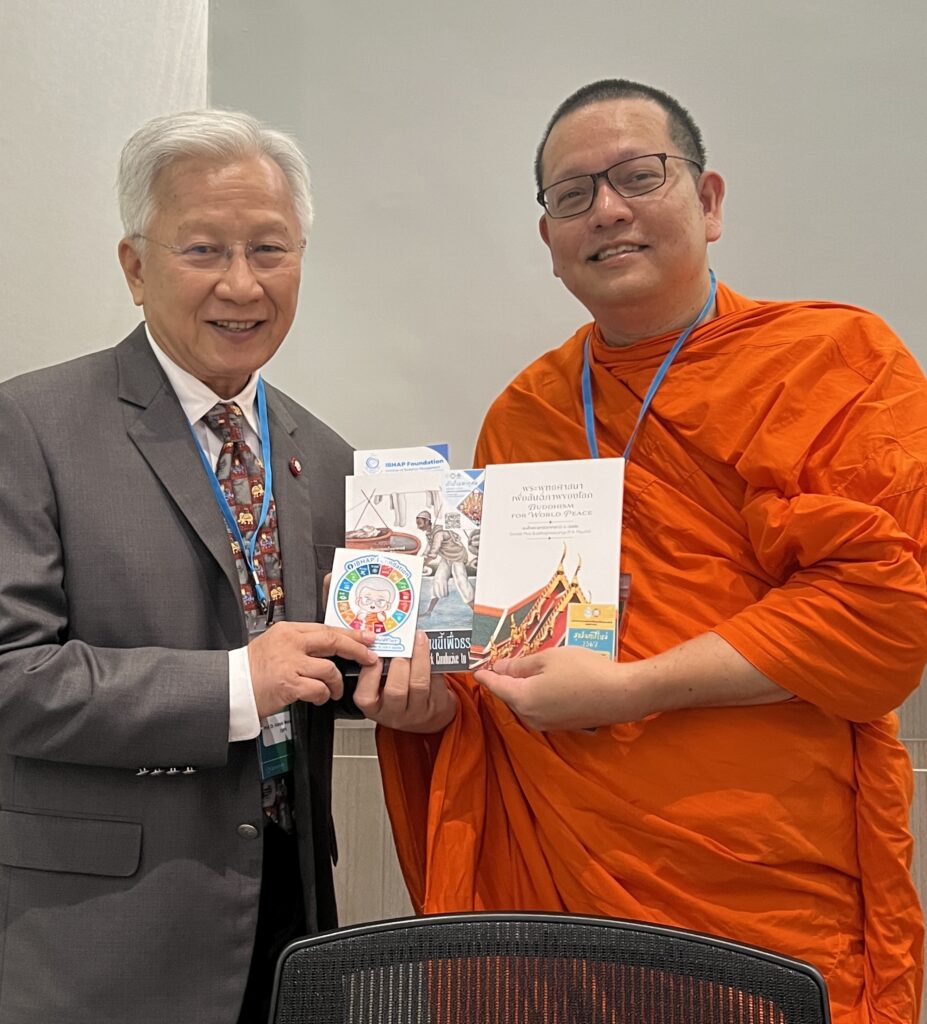
(+) Beyond unity in diversity, seek beauty in diversity. Focus on peace, love, caring, generosity, forgiveness, tolerance, life after death, etc. By seeing “shared similarities and shared purposes, we will understand how those diversities complement and supplement each other.”
(+) Broaden engagement with our communities and people on building understanding, respect, tolerance, shared purposes of our different faiths in order to promote co-existence. Schools and universities are good places to start a dialogue, first with small and simple topics and then move on to more complex and bigger topics.
(+) Remember that humanity has the ability to solve all kinds of problems and to meet all challenges. These abilities will shine out only when we defeat our own prejudices, biases, egos and self-interests. We must move beyond our tribes, language, traditions, cultures and religions and work for the betterment of humanity at large.
(+) Open our minds to receive new ideas, especially different ideas. Use interfaith dialogue as an open forum to learn from each other, create mutual understanding and respect those who hold different faiths and beliefs, bridge differences and build peaceful coexistence.
(+) Seek opportunities to convert talk into joint action. There are many good examples of interfaith collaboration in Thailand which we can learn and share to our younger generations.
Dr Kanok ended with an appeal and a prayer, “We call upon intellectuals, philosophers, religious figures, artists, media professionals and men and women of culture in every part of the world, to rediscover the values of peace, justice, goodness, beauty, human fraternity and coexistence in order to confirm the importance of these values as anchors of salvation for all, and to promote them everywhere. Sathu, Amen and Ameen.”
Conclusions
One question asked in the Q&A session was a clear indicator of the simmering threats. It was directed at the Ven Napan Thawornbanjob by a questioner who did not identify himself. He asked how interfaith dialogue could help resolve the “unpleasant situation” which crops up in some areas where people object to building a mosque, especially where there are few Muslims. He also asked about what he referred to as the troubles involving Muslim communities in Europe. The monk politely dodged the questions, but they went to the heart of the issues the conference was convened to address.
The ongoing Israel-Palestine has worsened global socio-cultural-ethnic tensions, which I have termed “The Other Global Warming.” Just as the mainstream “Global Warming” has destabilised the natural environment, so too, will “The Other Global Warming” destabilise the socio-cultural-ethnic environment and cause similar damage. Travel & Tourism was late to pick up on the threat of “Global Warming” and now faces the more immediate and fearsome threat posed by “The Other Global Warming.”
In fact, as an “industry of peace”, Travel & Tourism still is perfectly placed to be a part of the solution. It sells places of worship for a living but does little nothing to promote the Peace they represent. The 5Ps of the SDG agenda (People, Planet, Prosperity, Peace and Partnership) prioritise the other 4Ps far more than P for Peace. This, in spite of the indisputable fact that Travel & Tourism is often a primary casualty of wars and conflicts and a primary beneficiary of peace and harmony.
One way move forward is for Travel & Tourism forums and events to replace the “Global Warming” pundits with moderate, faith leaders trying to alleviate “The Other Global Warming”. If Thailand can become a HUB for such interfaith dialogue to promote Harmony, Order and Balance (HOB), it will simultaneously grow its status as a HUB of all the other seven sectors on the Prime Minister’s agenda.
============
In May 2023, the Samakee Institute organised its first “BANGKOK INTER FAITH AND CULTURAL DIVERSITY TRIP”. Here are the images of the itinerary and participation. The dates of this year’s trip are under consideration. The concept of promoting Thailand As The World’s First Alliance of Civilisations Destination is already in place. The true “visionaries and thought-leaders” in the Travel & Tourism business community will see the opportunity to promote Peace by forging new Partnerships to create Prosperity and benefit both People and the Planet.
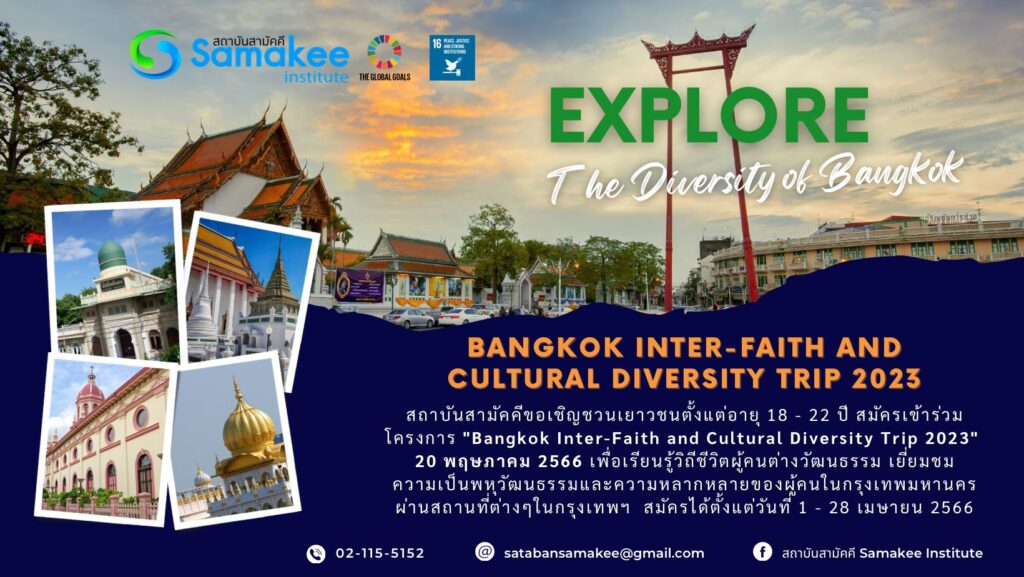
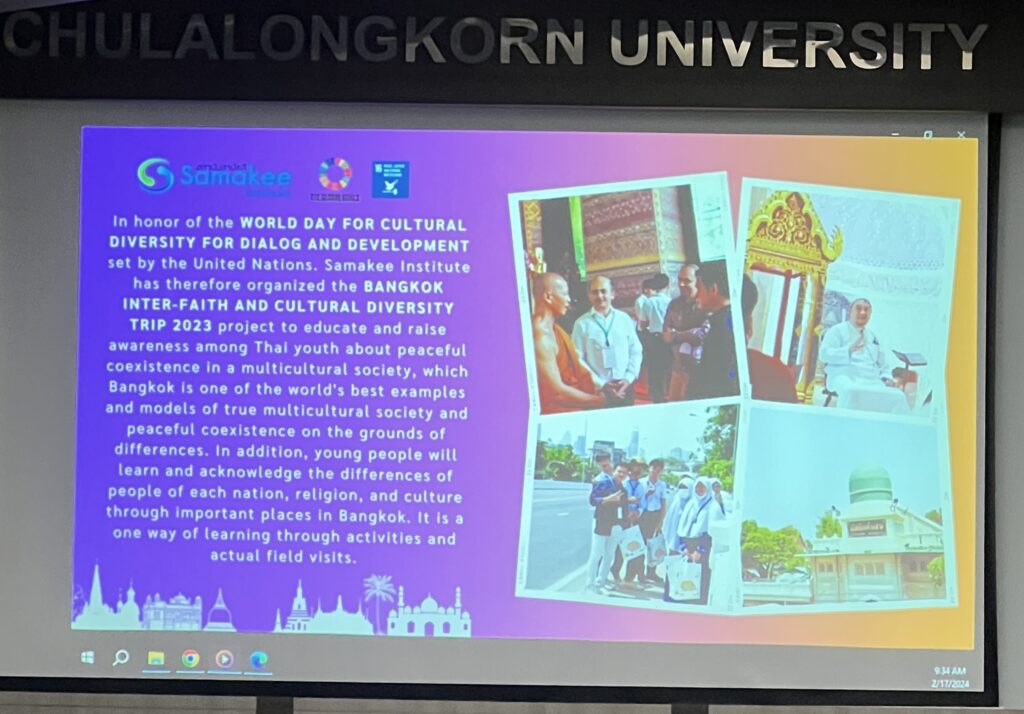
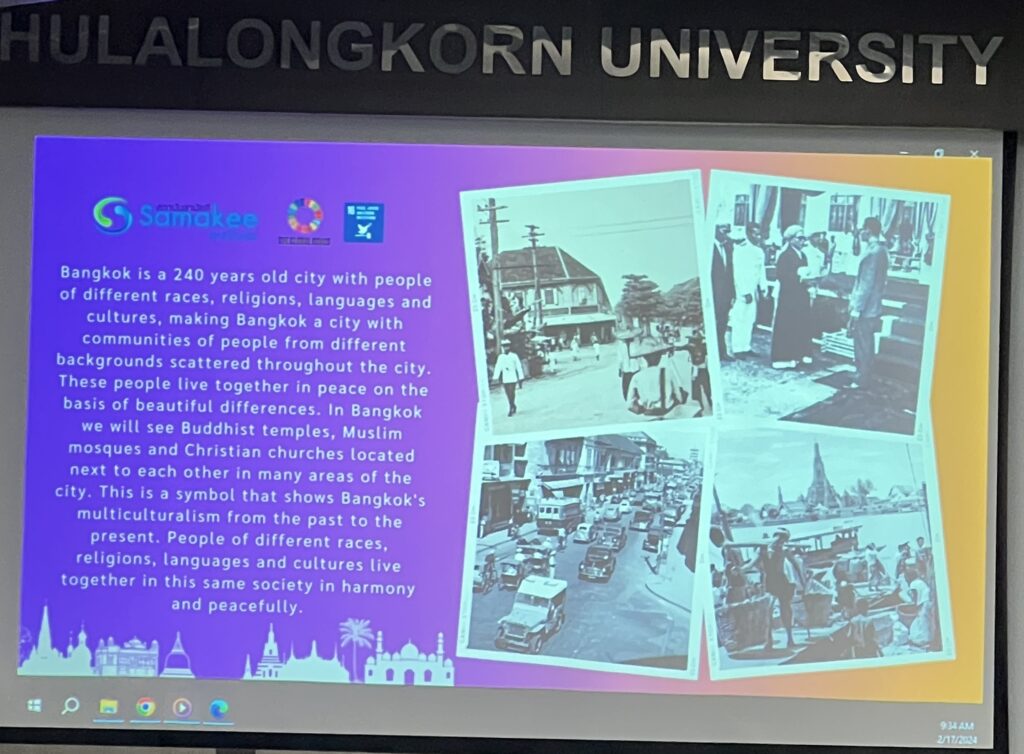
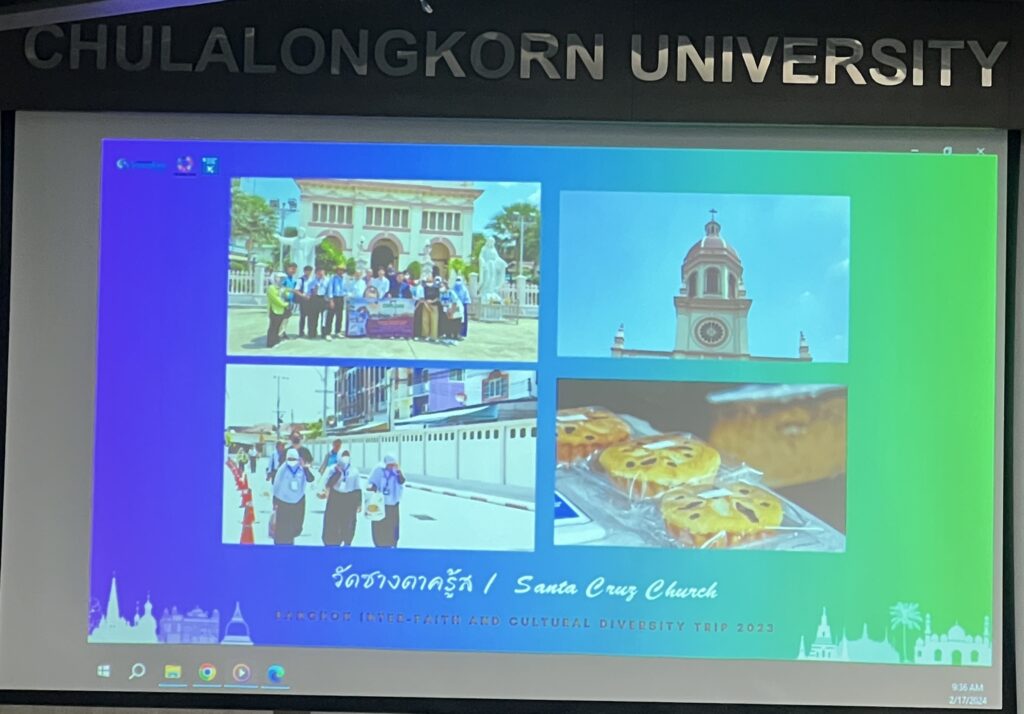
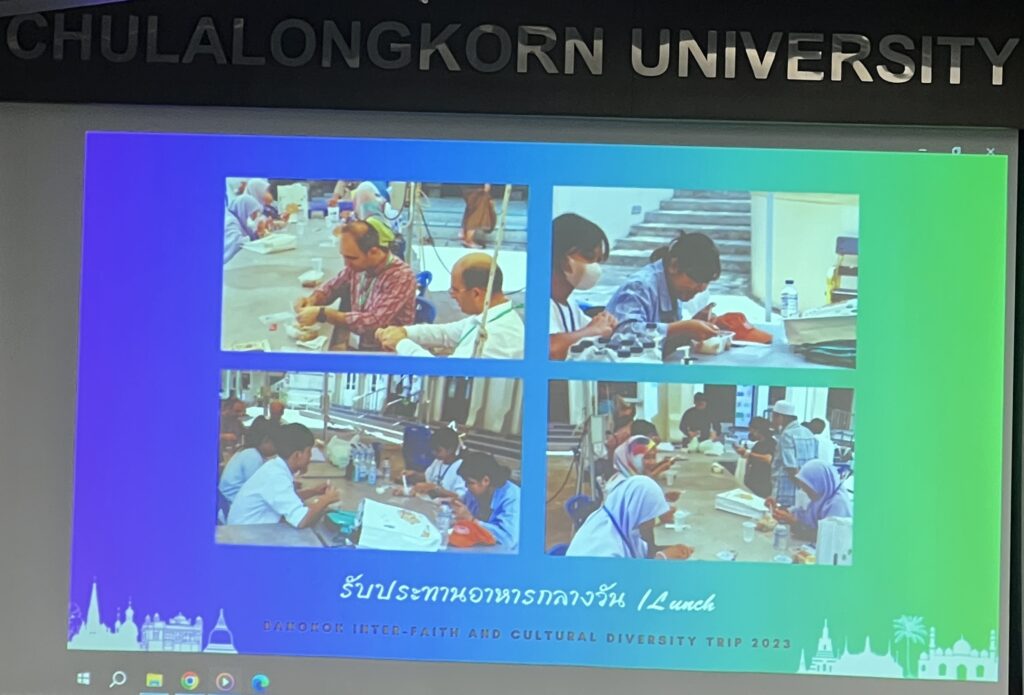
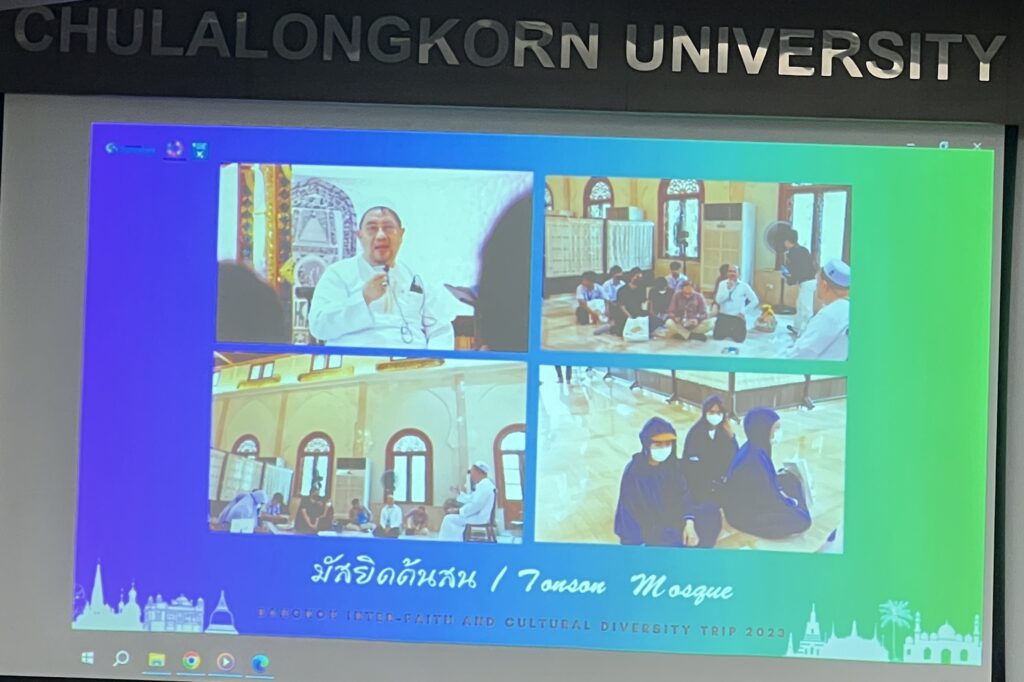
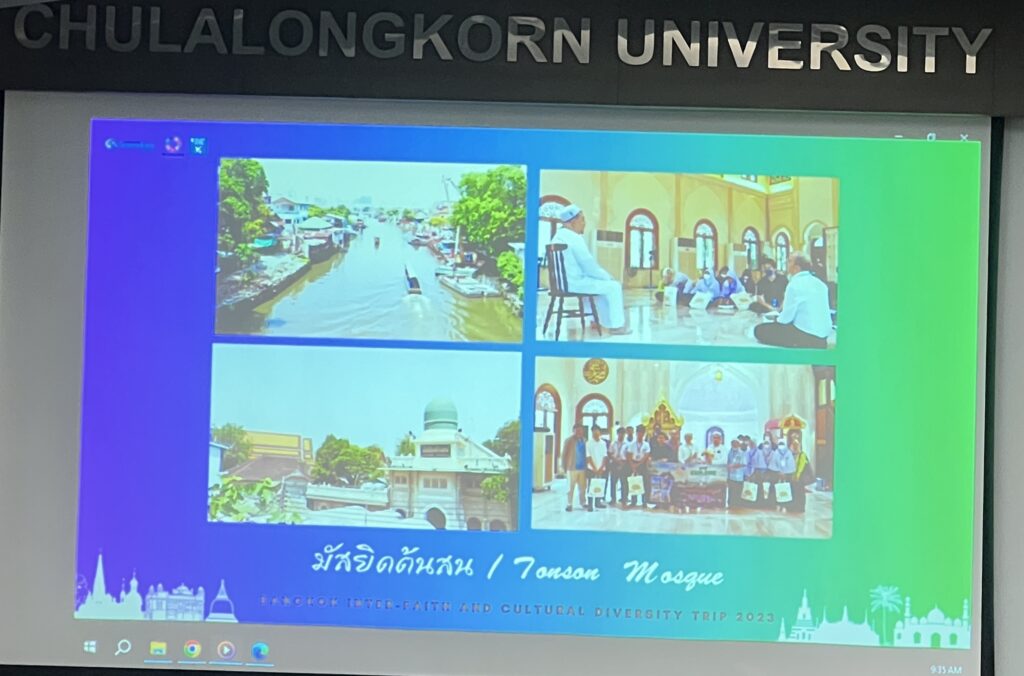
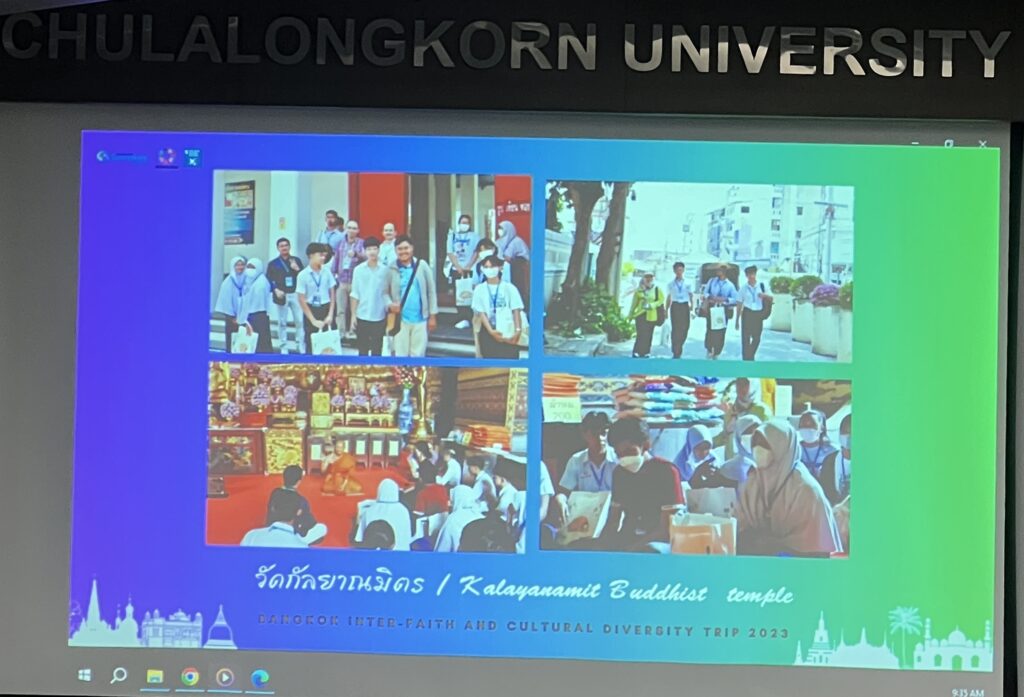
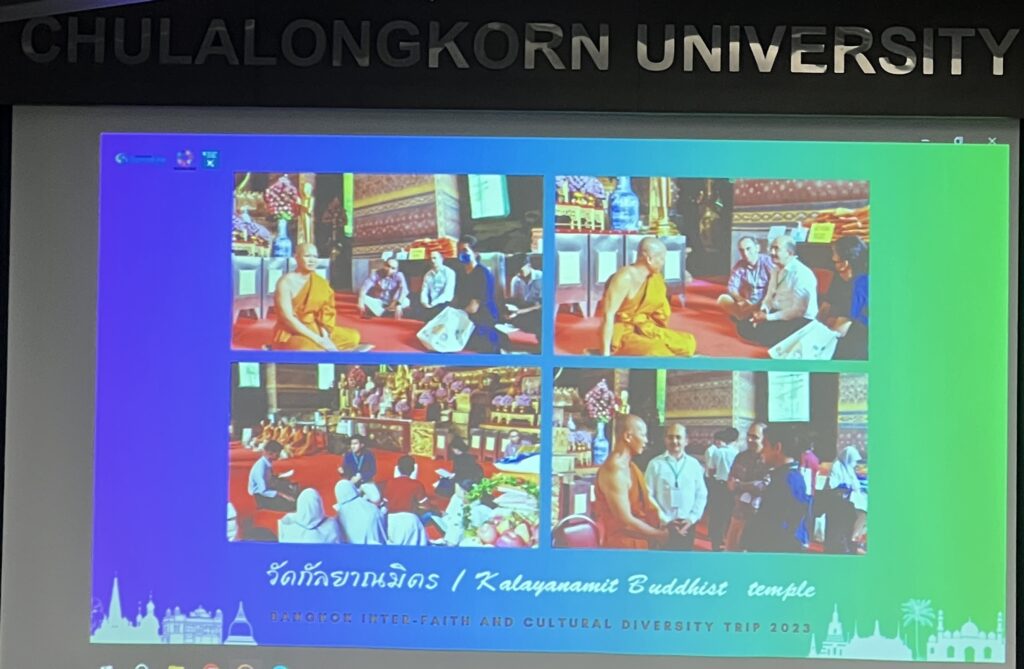
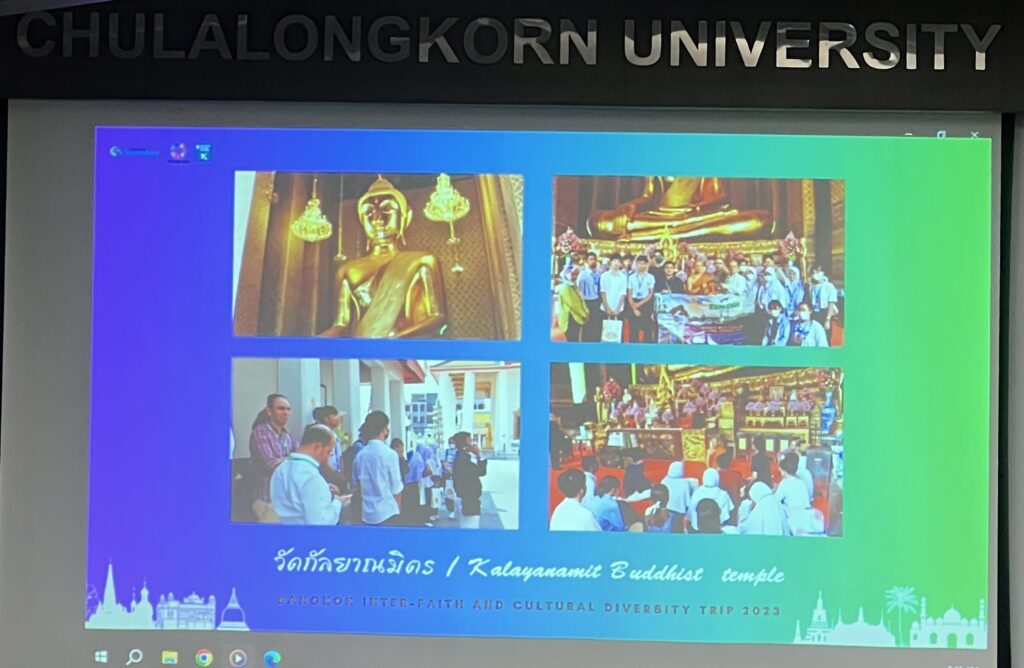
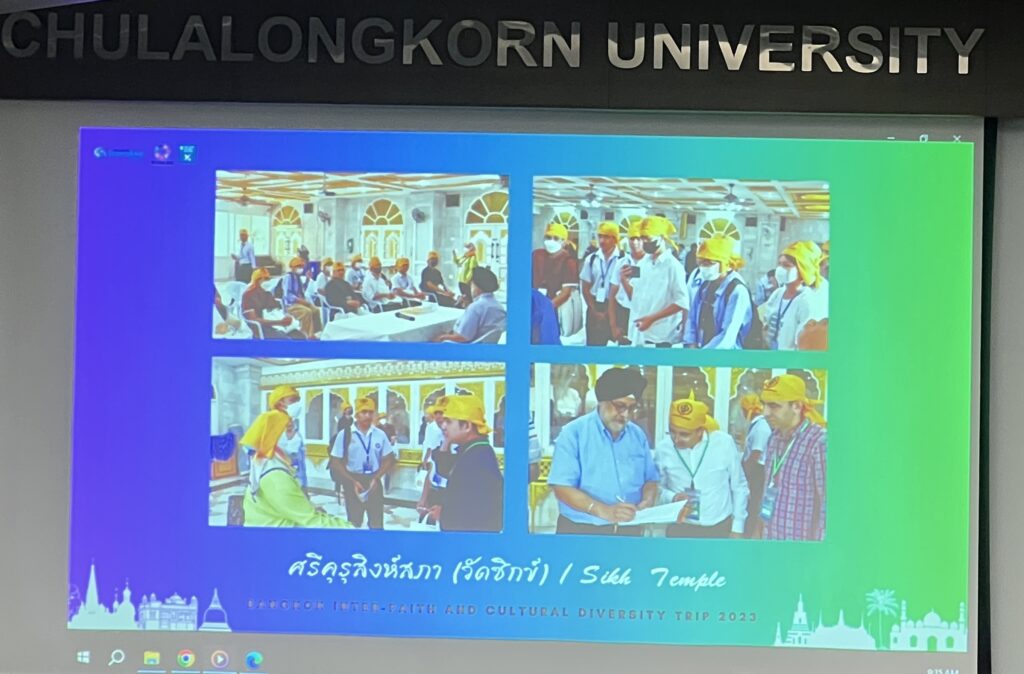
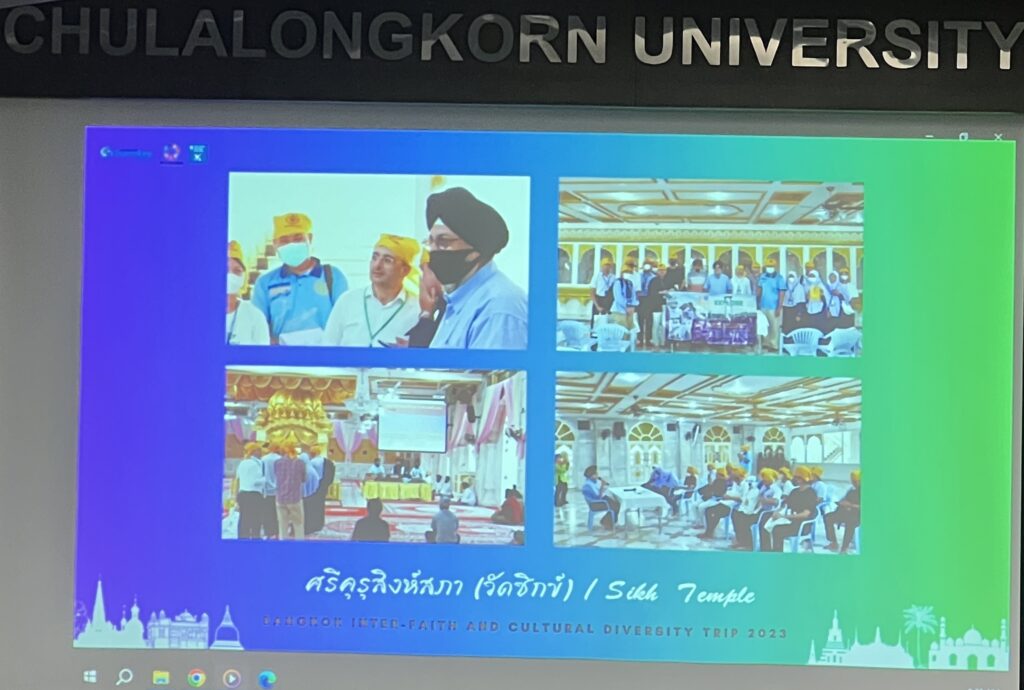
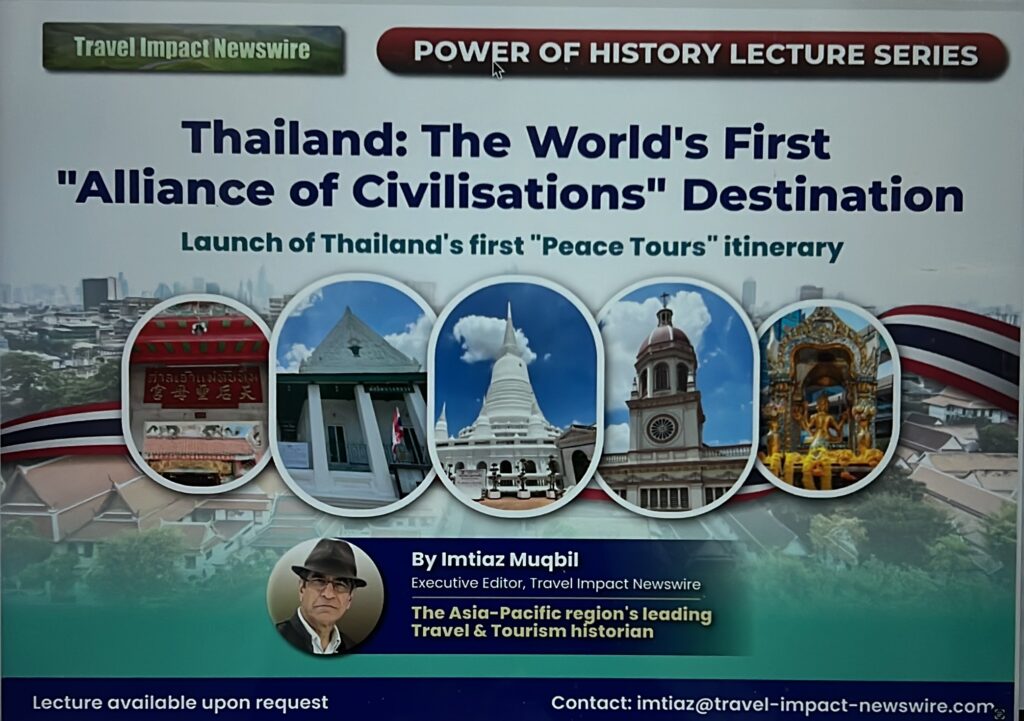



Liked this article? Share it!